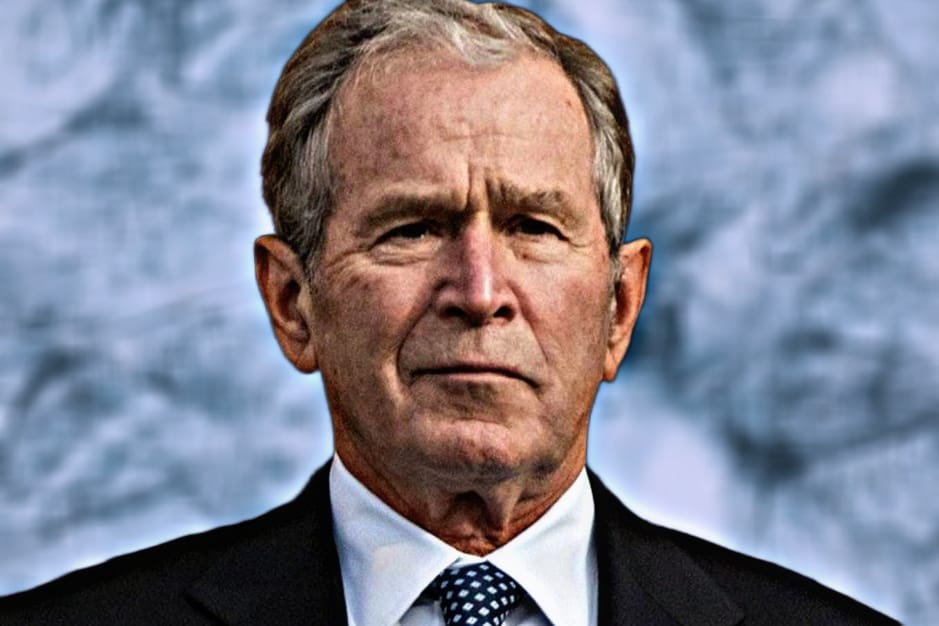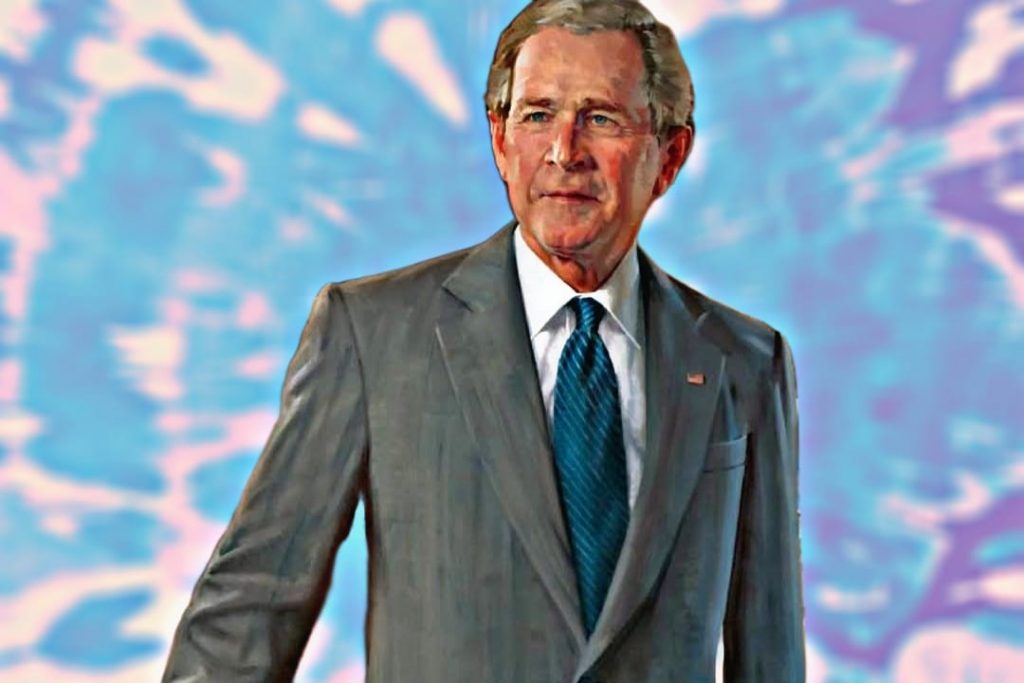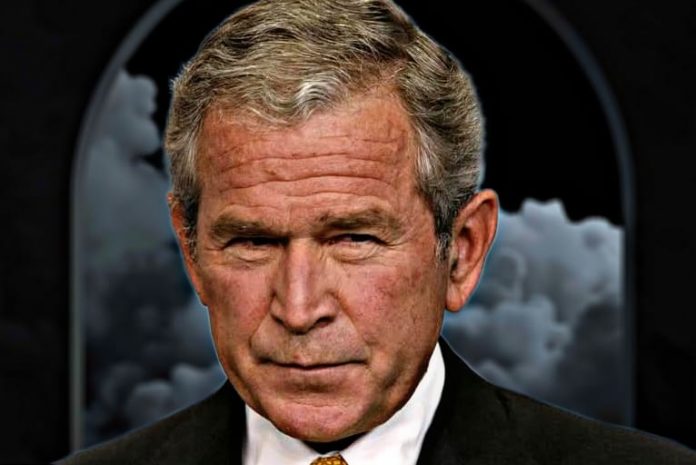George W. Bush, the 43rd President of the United States, served two terms in office from 2001 to 2009. As a figurehead of the Republican Party, his presidency was shaped by a series of pivotal events, most notably the September 11 attacks, the ensuing War on Terror, the Iraq War, and the global financial crisis of 2008. His leadership, policies, and the controversies surrounding his administration continue to evoke intense debate, making his legacy one of the most scrutinized in modern U.S. history.
In this article, we will delve into the life and career of George W. Bush, exploring his early years, rise to political prominence, major policies, challenges during his presidency, and how history views his leadership. Through this examination, we will gain insight into the broader political and historical context of the early 21st century, a time of rapid change and significant global events.
Early Life and Background
George Walker Bush was born on July 6, 1946, in New Haven, Connecticut, to George H. W. Bush, the 41st president of the United States, and Barbara Bush, a formidable political figure in her own right. The son of a prominent political family, George W. Bush grew up in an atmosphere steeped in public service. However, his path to politics was not straightforward, and his early years were marked by personal struggles, including difficulties with academics and a rebellious streak.
Bush attended Yale University, where he earned a degree in history in 1968. He then went on to Harvard Business School, receiving an MBA in 1975. Despite his prestigious education, Bush initially shied away from politics, focusing instead on business ventures. He worked in the oil industry and later became part-owner of the Texas Rangers baseball team. His involvement in the team gave him valuable experience in public relations, which would later serve him in his political career.
In the 1990s, George W. Bush entered the political arena, winning the governorship of Texas in 1994. During his tenure as governor, Bush developed a reputation for pragmatic leadership, promoting education reform, tax cuts, and the execution of capital punishment. His time in Texas helped to refine his political identity, positioning him as a moderate conservative who could appeal to a broad range of voters.
The 2000 Presidential Election

George W. Bush run for the presidency in 2000 marked a pivotal moment in American politics. The election, which saw Bush face off against the Vice President under Bill Clinton, Al Gore, became one of the most contentious and controversial in U.S. history. The race was tight, with the outcome ultimately hinging on the state of Florida and its 25 electoral votes.
After a protracted legal battle over recounts in Florida, the Supreme Court intervened, ruling in Bush v. Gore that the recounts should be stopped, effectively awarding the state’s electoral votes to Bush. George W. Bush won the electoral college by 271 votes to Gore’s 266, despite losing the popular vote by nearly 500,000 votes. The Supreme Court’s decision was highly controversial, and the election of George W. Bush remains a subject of debate regarding its legitimacy.
The September 11 Attacks and the War on Terror

One of the defining moments of George W. Bush presidency occurred on September 11, 2001, when the United States experienced a devastating terrorist attack carried out by the militant Islamic group al-Qaeda. Four commercial airplanes were hijacked; two were flown into the World Trade Center towers in New York City, one into the Pentagon in Washington, D.C., and one crashed into a field in Pennsylvania after passengers attempted to regain control.
In the aftermath of the attacks, Bush’s leadership was immediately tested. In a historic speech to the nation, George W. Bush vowed to bring those responsible to justice. His response to 9/11 would define the next decade of American foreign policy and have far-reaching consequences for both domestic and international politics.
The War on Terror
The George W. Bush administration launched the War on Terror, a global campaign aimed at dismantling terrorist organizations and preventing further attacks. The initial phase of this war focused on Afghanistan, where the Taliban government had provided sanctuary to Osama bin Laden, the leader of al-Qaeda. The United States, with the support of NATO allies, swiftly toppled the Taliban regime, and bin Laden went into hiding.
Following the success in Afghanistan, the George W. Bush administration shifted its focus to Iraq, where it claimed that Saddam Hussein’s regime was developing weapons of mass destruction (WMDs) and could pose a threat to U.S. security. Despite widespread international opposition and skepticism regarding the existence of WMDs in Iraq, the Bush administration led an invasion of the country in March 2003.
The Iraq War
The Iraq War would become one of the most controversial conflicts in modern American history. The invasion initially succeeded in overthrowing Saddam Hussein’s government, but the aftermath proved to be far more complicated. The lack of a clear post-invasion strategy, the rise of insurgency groups, and the sectarian violence that erupted between Iraq’s Sunni, Shia, and Kurdish populations led to widespread instability. The war also diverted attention and resources from the ongoing efforts in Afghanistan.
The George W. Bush administration faced intense criticism for the decision to invade Iraq, particularly after no WMDs were found. The war’s long duration, its high human and financial costs, and the perception that it was based on faulty intelligence severely tarnished Bush’s approval ratings, particularly in his second term.
Domestic Policy and the Economy

In addition to his foreign policy challenges, George W. Bush domestic policies were significant in shaping the direction of the U.S. during the 2000s. His administration championed tax cuts, education reform, and healthcare policy changes, but it also struggled to address the economic crisis that unfolded toward the end of his second term.
Tax Cuts and Economic Policies
One of George W. Bush key domestic achievements was the 2001 and 2003 tax cuts, which were aimed at stimulating the economy by reducing taxes for individuals and businesses. These cuts were highly controversial, with critics arguing that they disproportionately benefited the wealthy and contributed to growing budget deficits.
While the early years of Bush’s presidency saw economic growth and low unemployment, the situation took a sharp downturn in 2007-2008. The subprime mortgage crisis, which led to a financial meltdown, brought the economy to the brink of collapse. The crisis resulted in the 2008 global financial crisis, which saw the failure of major financial institutions, a sharp drop in stock markets, and widespread unemployment.
The Financial Bailouts and Stimulus Packages
In response to the economic collapse, George W. Bush administration passed a series of emergency measures, including the Troubled Asset Relief Program (TARP), which provided financial assistance to banks and other major industries. These actions, along with further stimulus packages, were designed to stabilize the economy and prevent a deeper recession. Despite these efforts, the economic recovery would be slow and painful, and the financial crisis became a key issue in the 2008 election that brought Barack Obama to the presidency.
Hurricane Katrina: A Test of Leadership
In 2005, another critical event occurred that would test Bush’s leadership—Hurricane Katrina, one of the deadliest and most destructive hurricanes in U.S. history. The hurricane struck the Gulf Coast, particularly affecting New Orleans, Louisiana, where flooding overwhelmed the city and left thousands of people stranded without adequate assistance. The federal government’s response to the disaster was widely criticized for being slow and ineffective.
The failure to provide timely relief to those affected by the storm damaged Bush’s reputation, particularly in regard to his handling of domestic crises. The government’s response highlighted deep flaws in emergency management and raised questions about the priorities of the Bush administration.
George W. Bush Second Term and Legacy
George W. Bush second term was marked by increased polarization and mounting dissatisfaction with his policies. As the Iraq War dragged on, and the U.S. economy faltered, Bush’s approval ratings plummeted. However, toward the end of his presidency, Bush did manage to implement some significant domestic reforms, including the Medicare Prescription Drug, Improvement, and Modernization Act in 2003, which expanded Medicare benefits for seniors.
George W. Bush also oversaw the passage of the No Child Left Behind Act in 2001, which aimed to improve educational standards and increase accountability in schools. Despite its good intentions, the act faced criticism for placing undue emphasis on standardized testing and not providing sufficient resources for schools to meet its goals.
By the time he left office in 2009, George W. Bush presidency had been marked by profound challenges, both domestically and internationally. The global financial crisis, the protracted wars in Iraq and Afghanistan, and the contentious political climate left a complicated legacy for his administration.
Post-Presidency and Legacy
After leaving office, George W. Bush largely withdrew from the political scene, opting to focus on his presidential library, personal memoirs, and charitable initiatives through the George W. Bush Presidential Center. He has also engaged in public speaking and taken part in various philanthropic efforts, including programs supporting military veterans and education.
Bush’s legacy remains contentious. While some view his actions as critical in the fight against terrorism and in asserting American influence globally, others criticize his decisions on Iraq, his handling of the economy, and his response to domestic crises like Hurricane Katrina. As history continues to assess his presidency, George W. Bush legacy will likely continue to evolve, shaped by both the successes and failures of his time in office.
Conclusion
George W. Bush remains one of the most complex and debated figures in modern American history. His presidency spanned some of the most defining events of the 21st century, including the 9/11 attacks, the War on Terror, the Iraq War, and the 2008 financial crisis. His leadership during these crises, as well as his domestic policies, has left a lasting mark on the country.
As time passes, historians and political analysts will continue to assess George W. Bush impact on the United States and the world. Whether viewed as a decisive leader in times of peril or as a figure whose policies were ultimately misguided, George W. Bush presidency will undoubtedly remain a crucial chapter in the story of American politics.

